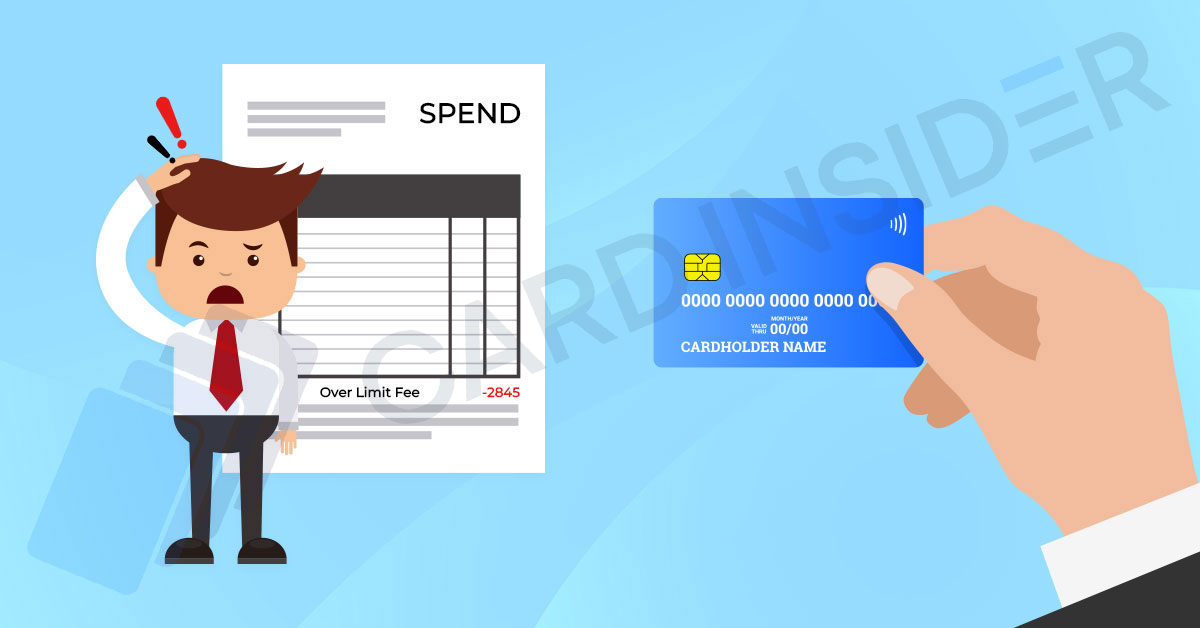Although Credit Cards are a great deal of benefits and complimentary gifts and perks, it is very important to know the specifics of using a credit card. The terms and conditions along with regulatory and other fees and charges are one of the very important aspects of a credit card and the user should be aware of them. There are many limitations applied by the bank for the usage of credit cards such as the credit card limit, and cash advance limit.
The Cash Advance Limit is something that allows you to withdraw direct cash with the help of a credit card and honestly, this is the most expensive feature of a credit card. Since, you have to pay a cash advance fee and interest rates charges from day 1 as there is no interest-free period in cash advance, using cash advance only in dire situations is recommended.
However, the credit limit is set by the bank depending upon your credibility which means the credit for which you are worth considering. Also, the credit utilization rate should be below 50% to 30% of the credit limit as suggested by the financial advisors. And because there might be occasions where you find yourself spending over your credit limit or in simpler terms exceeding the credit limit, this is where the credit card over-limit fee becomes relevant.

Credit Card Over-Limit Fee
The over-Limit fee is one of the ways where credit card companies seek to manage their risks. And since unsecured credit cards are an unsecured form of debt, credit card companies do not have any collateral to hold against the cardholder if they default. This is the main reason that credit card companies do not encourage the customer to involve themselves in financially risky behavior and thus the credit limit is provided. By charging this fee the credit card companies not only dampen the reckless spending behaviour, they are also able to generate some revenue.
Right now, credit card companies are restricted from charging this fee greater than the amount by which the borrower exceeded their credit limit which means if you have exceeded by Rs. 50 from your credit limit, you cannot be charged more than Rs, 50 as an over-limit fee.
There might also be banks that do not offer a convenient over-limit facility at all but there are others who provide it. This credit card over-limit facility might seem like an unethical thing to do but it can help you in urgent financial needs. While some banks charge up to 5% of the over-limit use, there are banks such as IDFC FIRST Bank who have a much lower fee of 2.5% for this over-limit credit card usage. However, there are also credit cards issued by different banks for which you need not pay anything extra even if you have exceeded your limit.
How Can a Credit Card Over-Limit Fee Affect Your Credit Score?
In case you are wondering whether or not the over-limit fee affects your credit score and if it is reported to the credit bureau, the answer is no. Payment of credit card limit fees is not directly reported to the credit bureaus directly. But there is a catch to it, if you have paid an over-limit fee, it is already clear that you have utilities 100% of your credit limit and even exceeded it. This can hinder your credit utilization ratio.
Read More: What Happens When You Overuse Your Credit Card Limit?
Credit Utilization Ratio
A credit utilization ratio is an average of your credit utilized every statement cycle determined on the basis of credit used out of your credit limit. According to the experts, your credit utilization ratio should be below 50% to 30% of your credit limit meaning the lower the better. This means that you should utilize around 30% of your credit limit during each billing cycle. This will show your responsible behavior towards your credit and thus directly improves your credit score.
However, in case of an over-limit fee, there are chances that you get your credit score indirectly affected by paying the fee. But one can only exceed over 10% to 20% of their credit limit as this much is what a bank allows.
How can you avoid credit card over-limit fees?
To make sure that you are not getting charged for this over-limit fee by the bank and indirectly affecting your credit score, you need to know your credit card well. This means you will have to clearly understand the important fees and charges levied on your credit card and most importantly how they come into effect.
Secondly, you need to be aware of important figures of your credit card such as the credit limit and cash advance limits. Next is to always plan your budget and prioritize things. By planning your spending on your card accordingly you will be able to figure out the things where you can cut off the expenses. This is important because it will initially help you prioritize the things in need, thus reducing the chances of spending over the credit limit.
Conclusion
Credit Card comes with great features but there are limitations to these features as well. Your credit limit is something that a bank determines to be your creditworthiness. However, this credit limit if crossed can indirectly affect your credit somehow. The reason is the over-limit fee which is charged once the user exceeds the credit limit, and once this fee paid shows up in your credit report your credit score can get some backlash. However, there is a certain amount till where the bank allows the borrower to exceed the limit which can be anywhere from 10% to 20% of the actual credit limit.
There are many ways through which you can avoid the over-limit fee and which can also help your credit utilization ratio. One of the ways is having a clear budget for your everyday expense.









